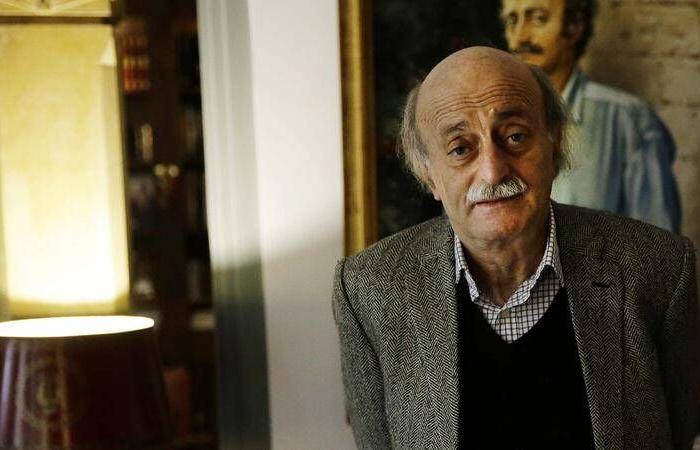“A certain visitor to Lebanon wants to give us lessons in resistance. It is we who can administer these lessons to him, not him. We have a rich history in this area. » This scathing response from Walid Jumblatt to the remarks made by the Iranian Minister of Foreign Affairs to his official Lebanese interlocutors during his brief stay in Beirut at the end of last week suggests an evolution of geopolitical data in the country of the Cedar following setbacks suffered by Hezbollah in the ongoing war against Israel.
It also expresses, without a doubt, a state of mind increasingly widespread in the country – and now accepted, including in governmental spheres – in relation to the legitimacy or relevance of the action of the The Iranian axis, in particular its focus on the Lebanese theater, the eternal priority payer in the Israeli-Palestinian conflict. Thus, in a statement to an Arab channel, the Lebanese Minister of the Economy, Amine Salam, judged on Tuesday “unacceptable that a foreign official dictates to Lebanon what it must do or not do”: a first coming from a government carried at arm’s length until now by the Shiite tandem Hezbollah-Amal.
The head of Iranian diplomacy had come to somewhat reframe the Lebanese leaders – mainly the outgoing Prime Minister Nagib Mikati and the Speaker of the House Nabih Berry – after their joint attempt, alongside Mr. Jumblatt, to dissociate the “front” from Gaza. of support” of South Lebanon, opened by Hezbollah on October 8, 2023. But it is of course the signals sent by the Druze leader which attract the most attention from observers, Walid Jumblatt being generally considered as a wise and subtle sensor geopolitical transformations in one direction or the other.
In addition to his remarks on the pedagogy of resistance made during an inter-Druze meeting in Chanay, in the caza de Aley, the former president of the Progressive Socialist Party returned to the charge later as part of Albert Kostanian’s show on the LBCI. He explicitly called for a dissociation of the Lebanese and Gazan components; full implementation of Security Council Resolution 1701, which provides in particular for the withdrawal of Hezbollah from areas south of the Litani; the deployment of the Lebanese army in these sectors and, then, ultimately, the implementation of resolution 1559, the real bane of Hezb. This text, which dates from 2004, demands the disarmament of “Lebanese and non-Lebanese militias” in the Land of Cedar.
That the Druze leader decides today to dig up the 1559, thrown by almost everyone at the bottom of a drawer sixteen years ago, after the Hezbollah militia coup in Beirut and in the Mountains on May 7, 2008, says a lot about the changes he detects in the local and regional balance of power, and in particular about the evolution of Hezb, whose final military debacle he clearly anticipates, in particular by not excluding the possibility that the Israeli army will succeed at the gates of Beirut, as in 1982.
Could this be yet another opportunistic “turnaround” by the leader of Moukhtara, as many Lebanese think? This would be to misunderstand the character and, above all, to misunderstand the situation of his community in Lebanese geopolitics. In Lebanon, a Christian, Sunni or Shiite leader can afford a lack of flexibility in his positions, to the extent that he has a more or less substantial space for community withdrawal, geographically speaking: the Christian of Achrafieh in Bécharré, the Sunni in North Lebanon and the central Bekaa (not to mention the surrounding Sunni ocean), the Shiite in the South, in Baalbeck-Hermel and in the southern suburbs of Beirut. The Druze space is bloodless, since this community is a minority in its own stronghold. But that’s not all. This space is located in the heart of the country; as a result, it constitutes an obstacle to the union of the three Shiite strongholds mentioned above. These reasons and many others, linked to the specificity of Jumblattist leadership and its constant desire to transcend the smallness of the community base to reach a Lebanese, pan-Arab and even international national dimension, mean that the Druze leader must ‘always be more attentive than others to geopolitical developments.
After October 8, 2023, Walid Jumblatt took a step towards Hezbollah based on support for the Palestinian cause. Today, in view of the Israeli escalation which is making Lebanon pay too high a price and the serious setbacks of the pro-Iranian militia, he is heading back the opposite way. That’s all.
Reassure the Shiites
But this repositioning does not preclude caution. What he virtually takes from Hezbollah and Iran, the Druze leader gives to Nabih Berry, whom he now considers to represent “the majority of Shiites”. Certainly, he disagrees with the latter about the timing of the presidential election, which he calls for to be held immediately, “in the middle of war”, while the leader of the Amal movement does not want to hear about it before the conclusion of a ceasefire. However, on another level, he is in total harmony with his partner on the election of a “consensual” President of the Republic, therefore acceptable to the Shiites.
Beyond the nagging question of the inclusion of the Shiite community in any political and institutional project, a necessity that many Lebanese protagonists give the feeling, at least verbally, of having understood and accepted, Walid Joumblatt tries to go further away. To the Hezbollah public, he seeks to send the following message: the sooner you accept the military defeat of the party, the more important your political role will be in the Lebanon of tomorrow, alongside the other Lebanese components. A way of reassuring this audience by moving the center of gravity towards Nabih Berry. This may certainly displease many Lebanese, but it also means that Lebanon will have freed itself from Iranian influence.
“A certain visitor to Lebanon wants to give us lessons in resistance. It is we who can administer these lessons to him, not him. We have a rich history in this area. » This scathing response from Walid Jumblatt to the remarks made by the Iranian Minister of Foreign Affairs to his official Lebanese interlocutors during his brief stay in…
- -





